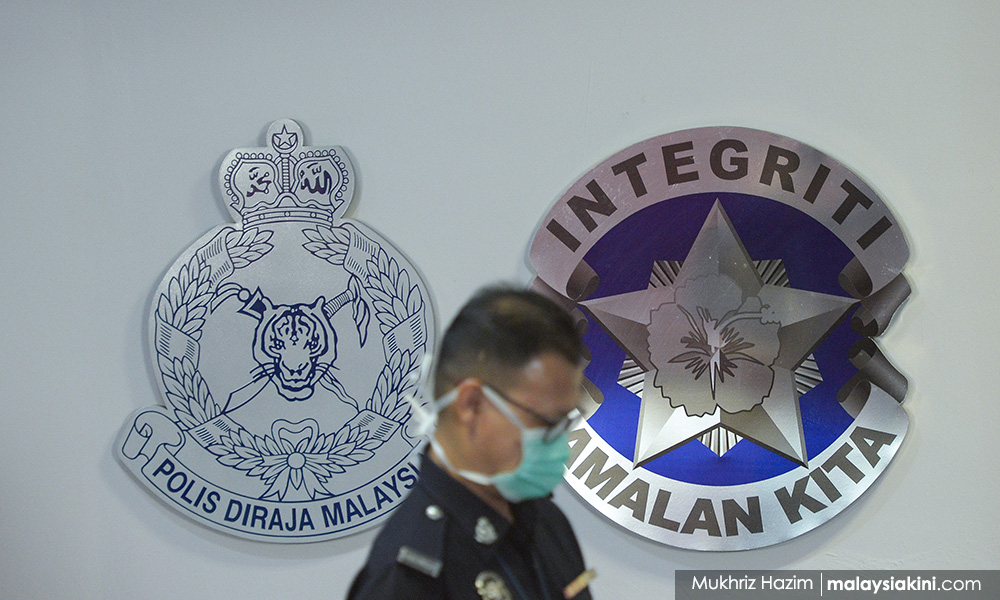We are writing this on Easter morning. Easter is a time of hope and we have been reflecting on this recent marvellous, wonderful, and just High Court ruling.
The High Court judgment by Justice Noorin Badaruddin finally acknowledges what the Child Act 2001 has been “saying” all these decades, that all children in Malaysia are protected and covered under the act and deserve our protection.
This means that all non-citizen children are protected by law in the country.
We are delighted that the government of the day has chosen not to contest this ruling but decided to withdraw its appeal. This is the only humane, just, and right thing to do and gives us an Easter gift of hope.
We also welcome the reforms to the laws protecting children in court, the recent announcement by the government to appoint an independent Children’s Commissioner, and the decision to draft a special bill to support this appointment.
This demonstrates that children’s rights and well-being are positioned as a national priority for Malaysia.
In a recent article about “Regaining Malaysia’s Humanity and Child Rights,” we discussed how we should treat and support all children in the country.
We would like to refresh ideas from that article and this landmark ruling and speak about the responsibility that government departments have to abide by the Child Act and support children.
The Child Act, in its preamble, recognises that “every child is entitled to protection and assistance in all circumstances without regard to the distinction of any kind, such as race, colour, sex, language, religion, social origin, or physical, mental or emotional disabilities, or any other status”.
This must be the guiding principle of all government departments and agencies that deal with children.

The Child Act 2001 is not just legislation for use only by the Department of Social Welfare, but an act that applies to all government departments and ministries that deal with children.
However, many departments are not operating in accordance with the Child Act and have standard operating procedures (SOPs) that conflict with the Child Act.
It is long overdue: all government departments and agencies must align their SOPs with the Child Act which is the legal provision for the protection and well-being of all children in our country.
Allow us to highlight some examples and areas that require urgent change; these are not exhaustive in their scope.
Department of Social Welfare
Under the Child Act, officers in the Welfare Department are designated by law as “child protectors.” Hence, they should take a lead role in ensuring the rights of all children in Malaysia are enforced.
Unfortunately, many read the Child Act as dealing only with abuse situations and relating only to families. At times, this is due to staff shortages.
In many circumstances, Welfare Officers fail to proactively intervene to support children and their rights as required in the Child Act.
This happens frequently when we call them to support the critical needs of migrants, refugees, stateless, or children of a different nationality. They often say, “not covered in their job scope.” There also exists a failure to see the full scope of duties under the act.
It is vital to point out that the Welfare Department has a chronic staff shortage and there are a limited number of designated child protectors. The government must address the staff shortage so that the department can fulfil its obligations under the Child Act.
Ministry of Health
We have long denied migrant, refugee, and stateless children their basic rights to healthcare, as enshrined in the Convention on the Rights of the Child; which our government acceded to over 30 years ago.
While the Child Act does not explicitly cover the provision of primary healthcare, it does make it very clear that we have a legal responsibility to all children who are ill and fail to get appropriate care. Section 17(1)(f) states that:

“A child is in need of care and protection if… the child needs to be examined, investigated, or treated for the purpose of restoring or preserving his health; and his parent or guardian neglects or refuses to have him so examined, investigated or treated.”
Daily, in the Ministry of Health (MOH) hospitals, and in the private health service, we have children whose parents choose not to follow medical advice and at times discharge the children against medical advice – “at own risk” (AOR) discharge.
At times, these decisions result in the child becoming disabled or dying.
All medical officers, working in tandem with welfare officers, have a legal responsibility to protect all children when parents make decisions that may be harmful to the health of their children.
Welfare officers are empowered under the Child Act to authorise medical treatment under Section 24. MOH needs to remove circulars that support the AOR discharge or refusal of treatment of children - as these go against the provisions of the Child Act.
Migrant, refugee, and stateless children have great difficulty accessing healthcare or hospitalisation when they are ill.
While admission is possible for life-threatening illnesses, guardians still have to pay high fees for hospitalisation, procedures, and medication, putting such healthcare out of the reach of the majority.
Some who are admitted are denied discharge until their bills can be settled. Others are reported to the Immigration Department and transferred to detention facilities.
The Child Act clearly states that all children are in need of care and protection if they need treatment. We need to facilitate their healthcare rather than restrict it.
In line with the Convention on the Rights of the Child and our Child Act, we need legal provisions that guarantee all children living in Malaysia the right to health care, regardless of their legal status.
Ministry of Education
While the Child Act does not spell out the specific duties of the Ministry of Education, the act is built on the principles of the Convention on the Rights of the Child.
Hence, the Child Act recognises that “every child is entitled to protection and assistance in all circumstances without regard to the distinction of any kind.”
All children, all circumstances. We appeal to the Minister of Education and the government to introduce and enforce the implementation of a mandatory universal education access policy for all children regardless of their status.
It could be argued that the denial of education to some children could be construed as “neglect” by the government.
Police, Immigration, and other enforcement authorities
All government enforcement agencies need to meet their obligations under the Child Act and ensure they operate within the legal boundaries stipulated there.
The detention, handcuffing, and processing of children, whether Malaysian or migrants, refugees or stateless, must be in line with the provisions of the Child Act.

Detention of children is inappropriate and harmful, as is the separation of children from their parents (Sections 83 and 84 of the Child Act).
We appeal to all government departments and agencies to uphold the legal rights of children as provided for in the Child Act. Malaysia, as a joint signatory to the Convention on the Rights of the Child, and having ratified it, has international obligations to protect all children in Malaysia and uphold their rights.
All adults, whether parents, guardians, teachers, officers, etc. should abide by the spirit of the Convention on the Rights of the Child which states:
“In all actions concerning children… the best interest of the child shall be a primary consideration”
Signatories of child advocates and civil society organisations:
1. Dato' Dr Amar-Singh HSS, consultant paediatrician, child-disability activist, Advisor, National Early Childhood Intervention Council (NECIC)
2. Cathryn Anila, Founder Vanguards4Change
3. Dato Dr. Hartini Zainudin, Child Activist
4. MIRM -Make It Right Movement
5. Yap Sook Yee, Disability Rights Advocate
6. Srividhya Ganapathy, Co-Chairperson CRIB Foundation
7. Irene Xavier, Persatuan Sahabat Wanita Selangor
8. Siti Aishah Hassan Hasri, SPOT Community Project
9. Anisa Ahmad, Persatuan Pengasuhan dan Perkembangan Awal Kanak2 Berdaftar Malaysia (PPBM)
10. Cikgu Rahayu, Child Activist
11. Protect and Save the Children
12. Malaysian Council of Child Welfare
13. END CSEC Malaysia
14. Pam Guneratnam, HumanKind
15. Ananti Rajasingam, Yayasan Chow Kit
16. Asha Singh, Diploma in Social Work student
17. Buku Jalanan Chow Kit
18. RD Ramesh Patel, Chairman Pertubuhan Kebajikan Vivekananda Rembau Negeri Sembilan
19. Family Frontiers
20. Sarawak Women for Women Society
21. Prof Dato Noor Aziah Mohd Awal, Suhakam Commissioner
22. Jeannie Low, Play Unlimited
23. Yuenwah San, The OKU Rights Matter Project
24. Kasthuri Krishnan Child Rights Advocate
25. Datin PH Wong Childline Foundation
26. Rabia Bazeer, Child Activist
27. Sabah women's action-resource group (SAWO)
28. Chee Yoke Ling, Executive Director, Third World Network
29. Health Equity Initiatives
30. Dr Sharuna Verghis
31. Margaret Loy, Community Transformation Initiative Bhd
32. Women's Centre for Change, Penang
33. Malaysian Rare Disorders Society
34. Montessori Association Malaysia
35. Ajeet Kaur, Co-Chairperson CRIB Foundation
36. Reproductive Health Association Kelantan
37. People's Health Forum
38. Agora Society Malaysia
39. Toy Libraries Malaysia
40. Azira Aziz, Lawyer
- Mkini
The views expressed here are those of the author/contributor and do not necessarily represent the views of MMKtT.




No comments:
Post a Comment
Note: Only a member of this blog may post a comment.